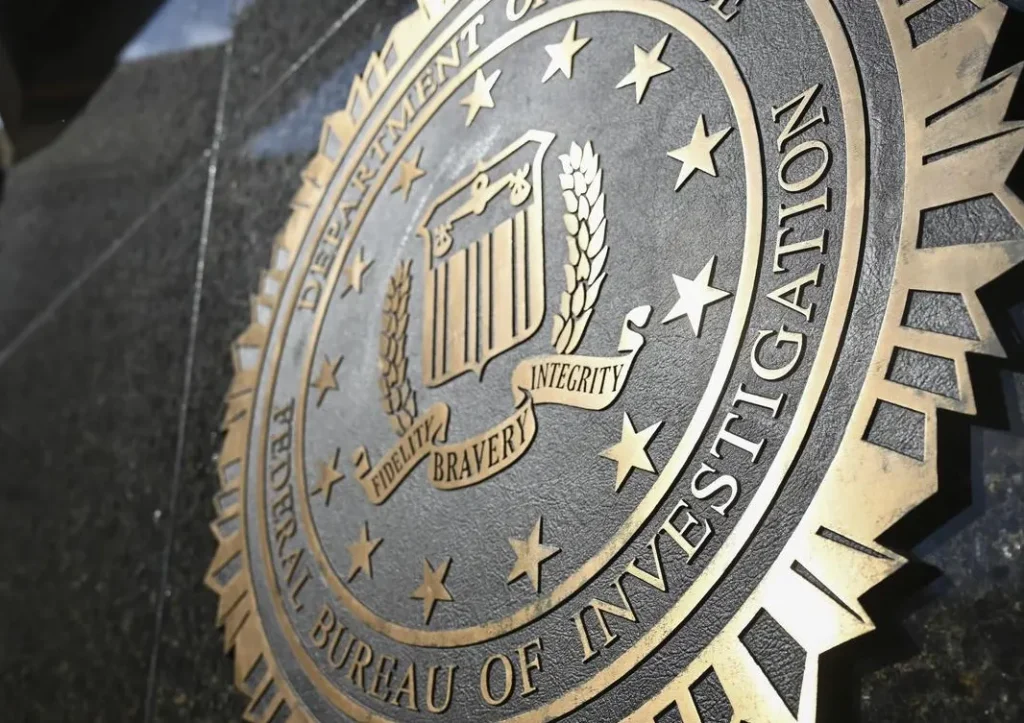FBI Warns iPhone, Android Users—Change WhatsApp, Facebook Messenger, Signal Apps

In a new security advisory, the Federal Bureau of Investigation (FBI) has issued an urgent warning for iPhone and Android users to change their messaging applications, including WhatsApp, Facebook Messenger, and Signal, due to potential vulnerabilities that could be exploited by cybercriminals or foreign entities. The warning underscores the growing threat of hacking and surveillance in the digital age, especially for popular communication platforms used worldwide for personal, political, and business interactions.
Rising Cybersecurity Concerns
As messaging apps like WhatsApp, Facebook Messenger, and Signal have become integral to daily communication for millions of users globally, they have also become prime targets for cybercriminals, hackers, and even government agencies. These platforms are widely used for personal conversations, business dealings, and even political activism, making them valuable assets for those seeking to monitor or intercept communications.
The FBI’s warning comes at a time when cybersecurity has become a top priority for individuals, companies, and governments worldwide. With the rise of sophisticated hacking techniques, including zero-day exploits, spyware, and malware, the risks to personal privacy and data security have increased significantly. These risks are compounded by the fact that many messaging apps store sensitive user data, including chats, contact lists, location data, and multimedia files.
Vulnerabilities in Popular Messaging Apps
According to the FBI, vulnerabilities within the aforementioned apps have made them susceptible to unauthorized access and exploitation. While all three platforms—WhatsApp, Facebook Messenger, and Signal—use encryption to secure messages, they are still vulnerable to various forms of cyberattacks. For instance, hackers may exploit security loopholes in the apps’ software to gain access to user data, intercept communications, or even install spyware on users’ devices.
WhatsApp, which is owned by Meta (formerly Facebook), has faced its share of controversies related to privacy issues and security flaws. In the past, security researchers have found vulnerabilities that allowed hackers to spy on WhatsApp users through malicious links or calls. The app’s reliance on a third-party service for message backup on cloud servers has also raised concerns about the security of user data.
Facebook Messenger, another platform owned by Meta, also has its own security concerns. Despite using end-to-end encryption in secret conversations, regular chats on Facebook Messenger are not end-to-end encrypted by default. This means that unless users actively select to use secret conversations, their data could be vulnerable to interception by third parties, including hackers and potentially even the platform itself.
Signal, known for its strong privacy measures and open-source nature, is often considered the most secure of the three platforms. However, even Signal has faced scrutiny. Its reliance on phone numbers for user identification and its potential to expose users to identity tracking or metadata leakage have raised concerns among privacy advocates. While Signal boasts of end-to-end encryption for all messages, its reliance on cloud backup for some services has been seen as a vulnerability.
FBI’s Recommendation for Action
In response to these growing security risks, the FBI is urging users to take immediate steps to protect their digital privacy. The key recommendation is for users to change their messaging apps to more secure alternatives or, at the very least, to implement additional layers of protection on their current apps.
Here are some key actions that the FBI suggests for improving messaging app security:
- Regularly Update Messaging Apps: Ensuring that the messaging apps are up-to-date with the latest security patches is essential. Both WhatsApp and Signal frequently release updates to address discovered vulnerabilities, and keeping apps current helps users stay protected from known exploits.
- Enable Two-Factor Authentication (2FA): Users should enable two-factor authentication (2FA) for their messaging apps wherever possible. This adds an extra layer of protection by requiring both a password and a second authentication method, such as a code sent to a phone, before gaining access to an account.
- Use Strong, Unique Passwords: Avoid using easily guessable passwords for messaging apps and ensure that each app has a distinct, strong password. This prevents attackers from accessing multiple accounts if one password is compromised.
- Switch to Encrypted Messaging Platforms: Users should consider switching to platforms known for their robust encryption and privacy policies. Apps like Threema and Telegram offer encrypted messaging services and are frequently cited by privacy experts for their strong security measures.
- Exercise Caution with Links and Attachments: Avoid clicking on suspicious links or downloading attachments from unknown contacts. Even encrypted messages can be compromised if users inadvertently expose their devices to malware through these mediums.
- Review App Permissions: Review the permissions granted to messaging apps regularly, and limit access to sensitive data like location services, microphone, and camera if not needed for specific functions.
The Role of Government Surveillance and Corporate Interests
The FBI’s warning also highlights a growing concern about government surveillance and corporate interests in the messaging app sector. Governments around the world, particularly those with authoritarian regimes, have been accused of using sophisticated hacking tools to intercept private messages from activists, journalists, and citizens.
While messaging apps are encrypted end-to-end, governments have increasingly pressured companies like WhatsApp and Facebook to provide backdoors for surveillance. This has led to tensions between companies and governments, with tech firms sometimes caught between protecting user privacy and complying with legal requests from governments. In some countries, governments have made attempts to outlaw encryption or force companies to create means of surveillance into encrypted communications.
Additionally, tech giants like Meta and Google may have an interest in collecting user data for targeted advertising or other corporate purposes. This is a significant concern for privacy-conscious individuals who fear that the data shared on these platforms could be used for commercial gain or potentially fall into the wrong hands.
The Importance of Digital Privacy
As digital threats grow more sophisticated, users are becoming increasingly aware of the need to protect their privacy online. The FBI’s warning serves as a stark reminder of how vulnerable our digital communications can be, even on platforms that claim to provide end-to-end encryption. With hacking techniques becoming more advanced and widespread, users must remain vigilant in securing their online identities and personal information.
While encryption is an important tool in securing digital communication, users must also be aware that no system is entirely foolproof. The combination of regular updates, secure passwords, and cautious online behavior can significantly reduce the risks associated with messaging apps. Users should also consider diversifying their communication methods, utilizing different platforms for different purposes to minimize potential exposure.
The FBI’s warning about the security risks associated with popular messaging apps like WhatsApp, Facebook Messenger, and Signal is a wake-up call for users who may have become complacent about their digital security. While these platforms are widely used and offer convenient ways to communicate, their vulnerabilities make them susceptible to cyberattacks, surveillance, and data breaches.
To stay protected, users should follow the FBI’s recommendations, update their apps regularly, enable two-factor authentication, and consider using alternative messaging platforms that prioritize privacy and security. In a world where digital communication is increasingly important, safeguarding personal information is no longer optional—it’s a necessity.






